Growing up, Latoya Raveneau loved to draw. “I’d take Movie Maker and scan in drawings, and then I’d scan a bunch of different mouth shapes. I was like, ‘I’m going to make this little anime character sing this song I really like!’” she says.
Her mother, a nurse, and her father, a contractor, hailed from the Caribbean island of Santa Lucia, and though they didn’t work in creative fields, they always shared stories or read to Raveneau and her sister, Megan. Raised in a West Indian/Puerto Rican neighborhood in Brooklyn, she was surrounded by other immigrant families who sought the best for their children in a new country. “You go home, you do your homework, work hard and get good grades because school is the most important thing,” she explains. She considered going into medicine, joking that she was interested in forensic pathology because she “couldn’t kill a corpse.” Instead, she decided to pursue a passion for creative writing and fine arts at UCLA.
“I was doing a cartoon-like style in this fine arts space in very bizarre and surreal ways,” she says. “I remember, I took an etching class and I was like, ‘I’m going to try to make an intaglio etching move.’”
Towards the end of her undergrad years, she discovered UCLA’s animation department by accident after enrolling in a class titled Writing for Animation. “It was not a writing class; it was a storyboarding class,” she says. “I was like, ‘Oh, this is the thing [I’m searching for]. This is drawing and writing at the same time.’” She applied to UCLA’s MFA in Animation program and pursued this new career direction.
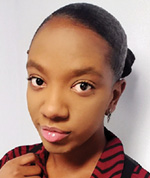
“I feel like a lot of film schools leave you in the space where you’ve done all the pieces of the production pipeline, but you don’t know which part of it you actually want to do professionally,” she says. She applied for many jobs and was eventually hired as a PA at Wild Canary. She says the experience taught her everyone’s role on a production: “In a weird way, I feel like the PA job informed me more about the things I’d be doing as a director.”
One day while sitting at lunch drawing, a newly hired Supervising Director commented on her work. “He said, ‘Oh, are you a board artist?’. I was like, ‘Oh, no, I’m a PA,’ and he gave me this look like, ‘What are you talking about? You’re a board artist.’” The vote of confidence inspired Raveneau to focus and pursue storyboarding. Shortly thereafter a job opening for a storyboard revisionist on Puppy Dog Pals became available and Raveneau was hired: “The track became very clear, and it was like everything else just fell away after that point. I was like, ‘This is the road we’re going down.’”
When the show wrapped, she was offered a storyboard artist position at ShadowMachine working on Final Space, a far cry from a preschool show. “I feel like the extreme served a purpose in that I got to learn a different style of drawing and of storytelling that forced me to become better at boarding,” she says. She was able to draw on her love of anime to board dramatic tournament battles and stretch the way she used camera angles.
While she was working on Final Space, her UCLA screenwriting professor reached out to her. A script she had written in college had stayed with him and he asked her, “Do you still write?” “It was the weirdest, most loaded question, because I was like, ‘Do I still write?’” She said “yes” and was hired to write for the Netflix show Super Monsters. “I’d never written young content before, and I didn’t want to write things in a way that was talking down to kids,” she adds. Story editor Kaaren Lee Brown gave her the freedom to lean into this idea, allowing her to tackle complicated emotions like envy.
Over the next few years, she toggled between Final Space and Puppy Dog Pals, writing freelance scripts on the side, and bringing sincerity to the adult content while infusing the preschool show with more dynamic cinematography, like doing GoPro-like footage during a chase scene, as if the preschool characters were on snowboards. “The adult show taught me there’s something to being really in a moment, even if it’s a super difficult way to board,” she says.
While working on the first season of Final Space, Raveneau was given more responsibility so when work started on season two, they offered her a role as an assistant director to the supervising director— “like a director with training wheels,” she laughs. “I was working with the board artists and launching them on shots, but if I had questions, there was a point person. I feel like the jump from boarding to directing is not a native one, [going from] a solo artist to this multitasking juggler, responsible for three episodes at the same time at varying stages.”
The experience provided her a framework to grow and learn and by the end of the season she was able to own her ideas and opinions. She was then offered a job directing at Octopie on a new show. It wasn’t smooth sailing, but she feels the experience helped her develop further in the new leadership role. “I learned a lot about how to direct under very fluid conditions—scripts changing, deadlines changing, stories changing. If this was a video game, I leveled up three levels.”
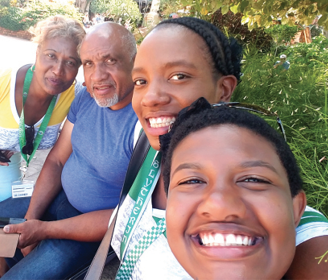
It wasn’t until The Proud Family reached out to her that she was overwhelmed with a feeling of finding the perfect career fit. “I think this is all I’ve ever wanted to do,” she says. As a child, she and her friends played games based on cartoons, and inevitably the characters were chosen around racial lines. She still gets emotional when she remembers being told to play the “archetypical” black girl, whose personality didn’t necessarily reflect her own. Even though the original The Proud Family was featuring characters not defined by their skin tone, it wasn’t a show that her friends were watching. That has changed today. “We’re breaking archetypes so now I’m like, let’s break everything. I just want to see everyone’s lived experience,” she says.
When asked if her race has impacted her career, she says “on a psychological level, a hundred percent.” It wasn’t until working on The Proud Family that she met another female black director, Tara Nicole Whitaker. “It sounds silly as I’m saying it, but I think I weirdly believed I couldn’t do it because I’d never seen it done. And then I was like, screw it, I’m just going to do it,” says Raveneau. “I feel like I out-energized any racism. I told a friend, this is not a way to live by, but it’s the way I think I’ve gotten through a lot of the harder parts of life. I blame weaponized optimism.”
In turn, while she’s directing, she strives to create an open space where everybody feels like they can talk honestly, and she credits show creator Bruce W. Smith with establishing a welcoming and safe environment for all voices. “It comes from the top down and I want to reinforce that. I think everybody has blind sides even if you’re a part of a POC community.And so I’ve been extremely vocal [that] if there’s something in a script or something in a board or something I’m asking for that is rubbing you the wrong way—even if you don’t know why—let’s talk about it because that’s coming from somewhere.”
Raveneau also strives to find ways to make the experience more inclusive, not just superficially. “That’s one shining beacon from the dumpster fire that has been 2020, we’re all talking about it and nothing is off the table right now.”
She also sees another kind of opportunity: “When the world got extremely real, after George Floyd, I felt very helpless. And I was like, what can I do? There’s nothing I can do. I call my mom and she’s like, ‘Well, you can reach the next generation.’ It is a singularly huge, superpower that animators seem to have. We can literally shape the way a whole generation of people sees reality. You can give them a world that is different from the world that they’re landing in. Now, you can build a world that is better.”
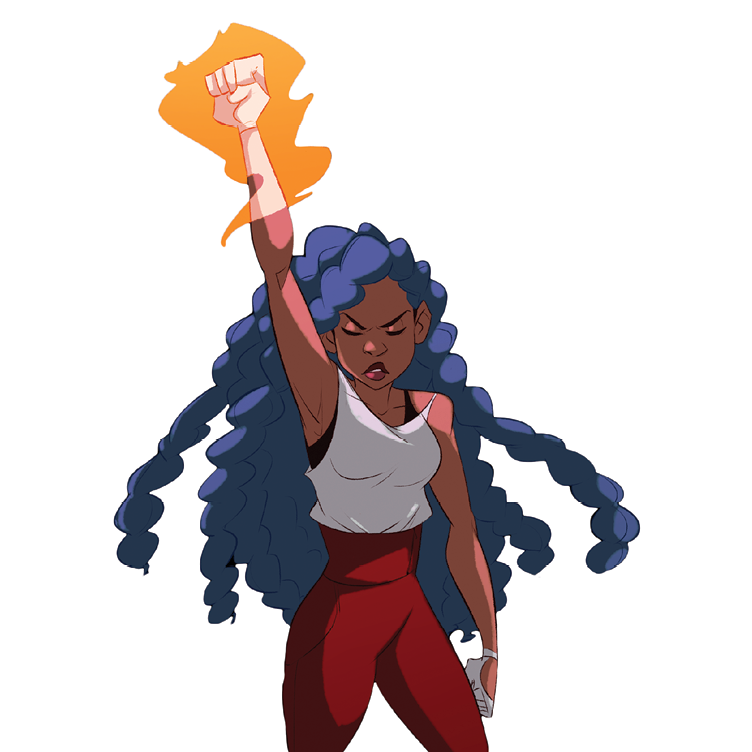
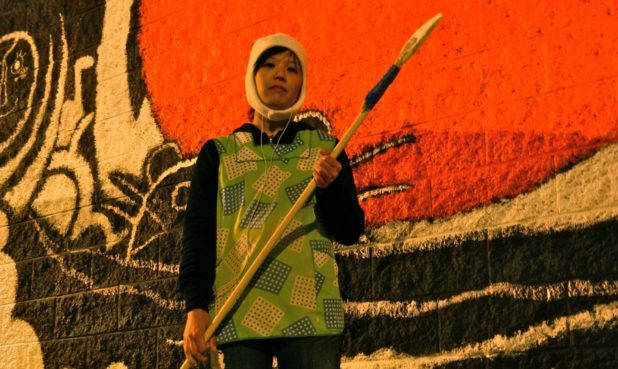
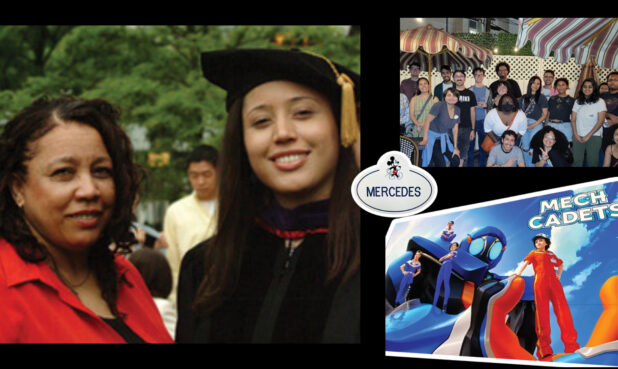
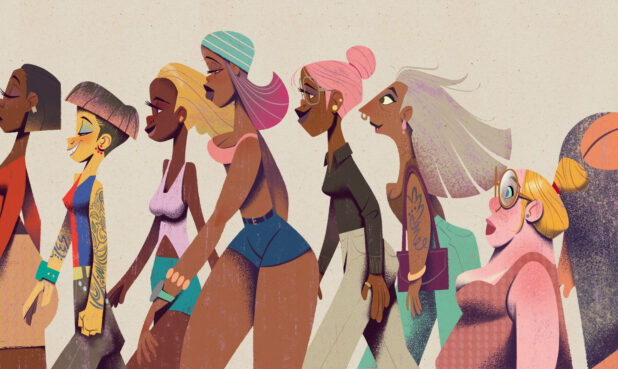
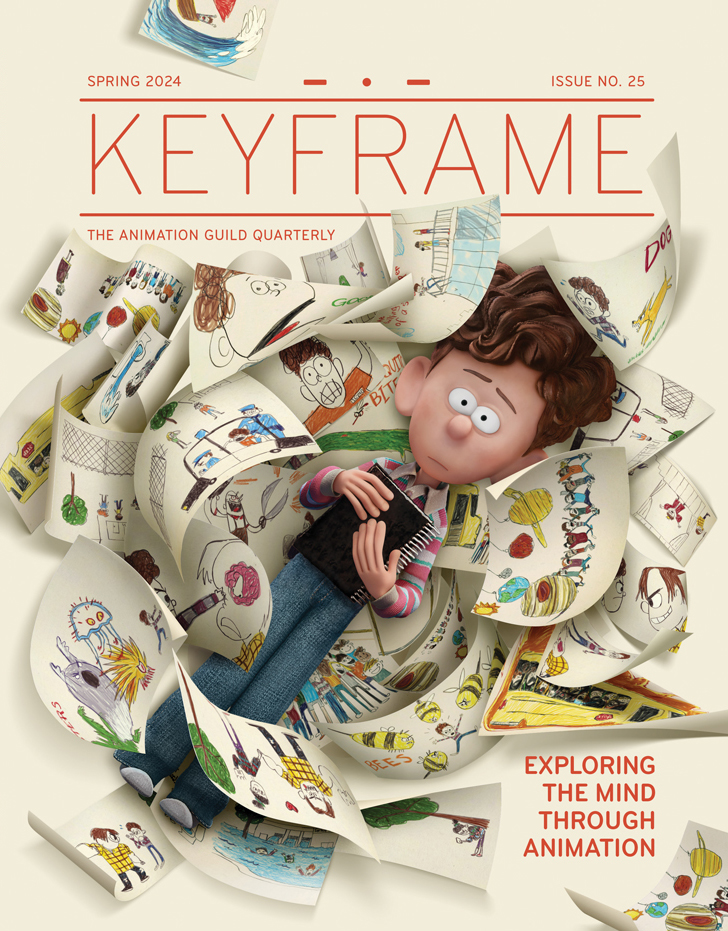
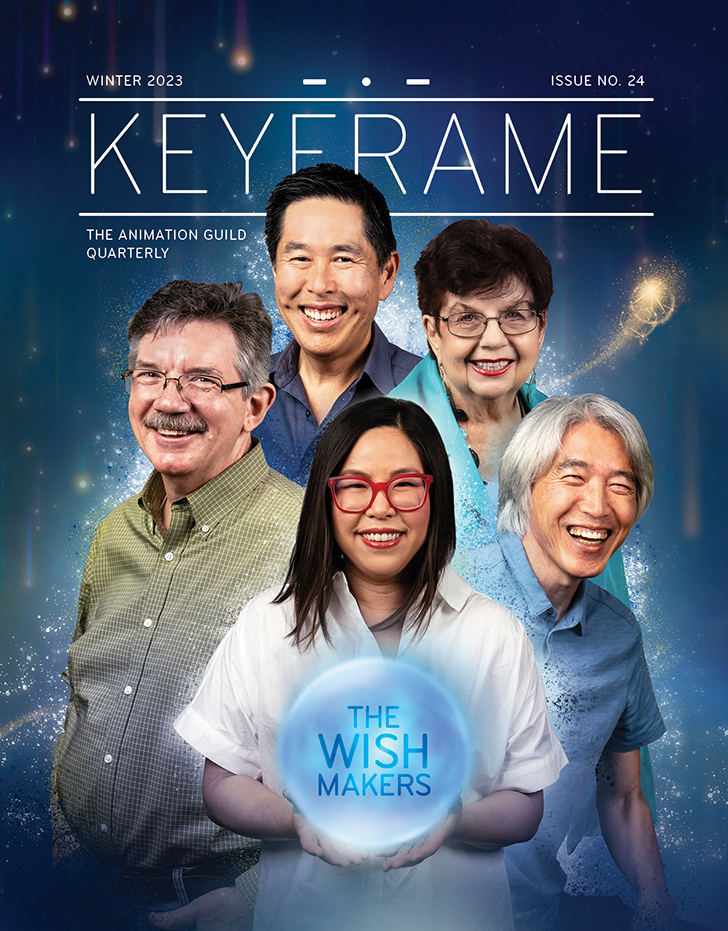
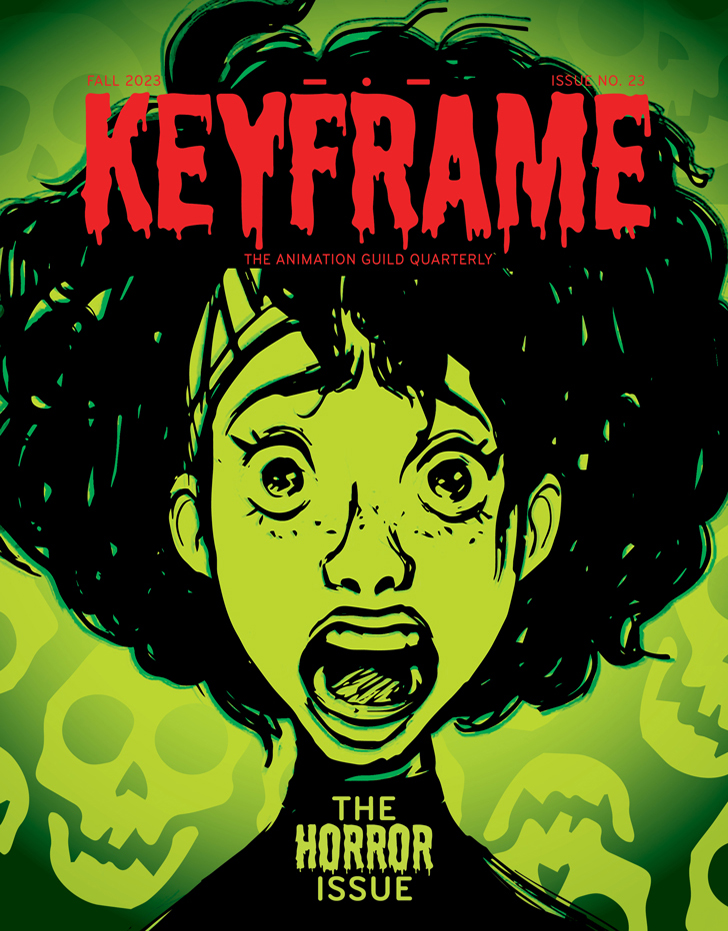
.png)